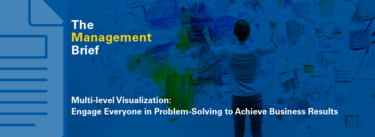During a kind of impromptu morning huddle, a coworker and I chatted about what each of us planned to do over the course of our work day. He told me, “Get the hardest thing, or most tedious thing done earlier in the day, and then the rest is a breeze.” He’d been reading Eat That Frog by Brian Tracy and had taken to its lessons in his own work.
In a traditional manufacturing sense, running a mixed model makes it easier to reduce the risk of overproducing any of one product and lowers finished good inventory. Also, running mixed production will result in a smooth flow of parts and even workloads throughout the factory. So what does that mean for the office? Though I’ve already incorporated some sort of mixed model to my in-office days (in order to satisfy customer need), I’m starting to think about my office routine more deeply.
As a knowledge worker, I notice I don’t dedicate the same brain power to all of my tasks throughout the day. My mind is clear and most energetic in the morning, so morning tasks tend to get my best thinking and attention. Why does this matter? If I’m putting together a proposal or working on anything having to do with strategy, these things require a clear mind and careful thought. So why would I schedule them later in the day?
Well, because doing simple things first is human nature. I think, I’ll do the simple tasks first because they’re there, they’re easy, and I know I can knock them out quickly. And some things have to go out to customers before other items. That’s just true. But I have more wiggle room than I think.
I spend plenty of hours helping others think about level loading their work. The challenge is doing the same for myself. After some deep hansei, I’m beginning to understand my challenge: how to optimize my day while also responding to customer needs, while also giving myself a mix of challenging work intertwined with task work. I want an easier day that’s also more customer-service-friendly.
For all other knowledge workers out there, how do you struggle to optimize your work days? How do you manage your responsibilities, help others manage theirs, and plan for the future? How do you define the problem?





